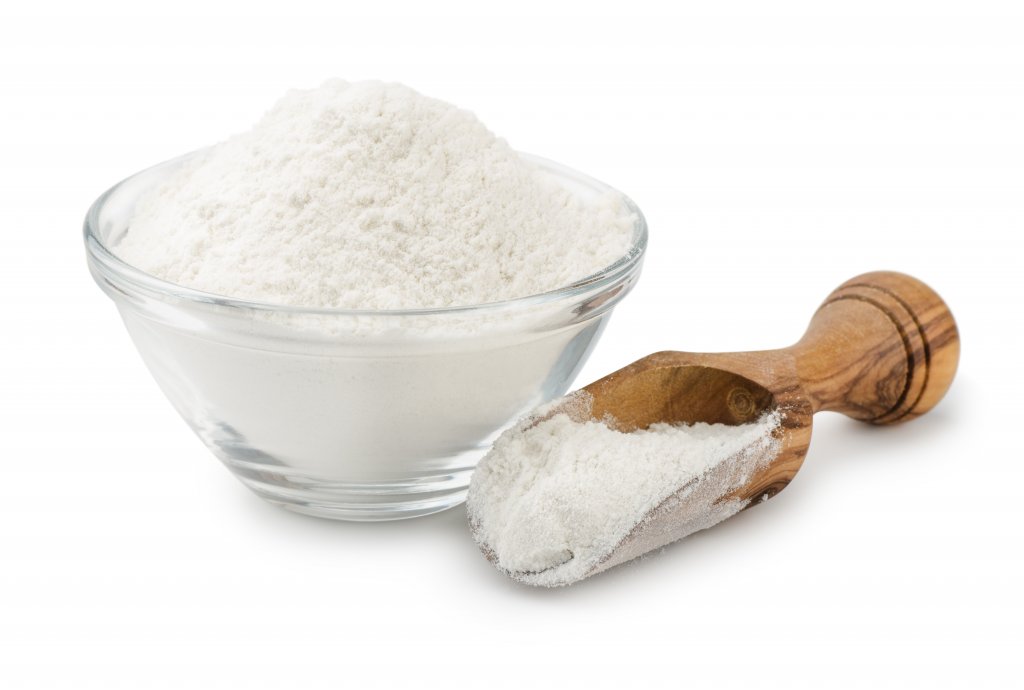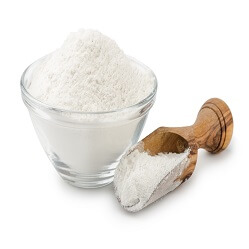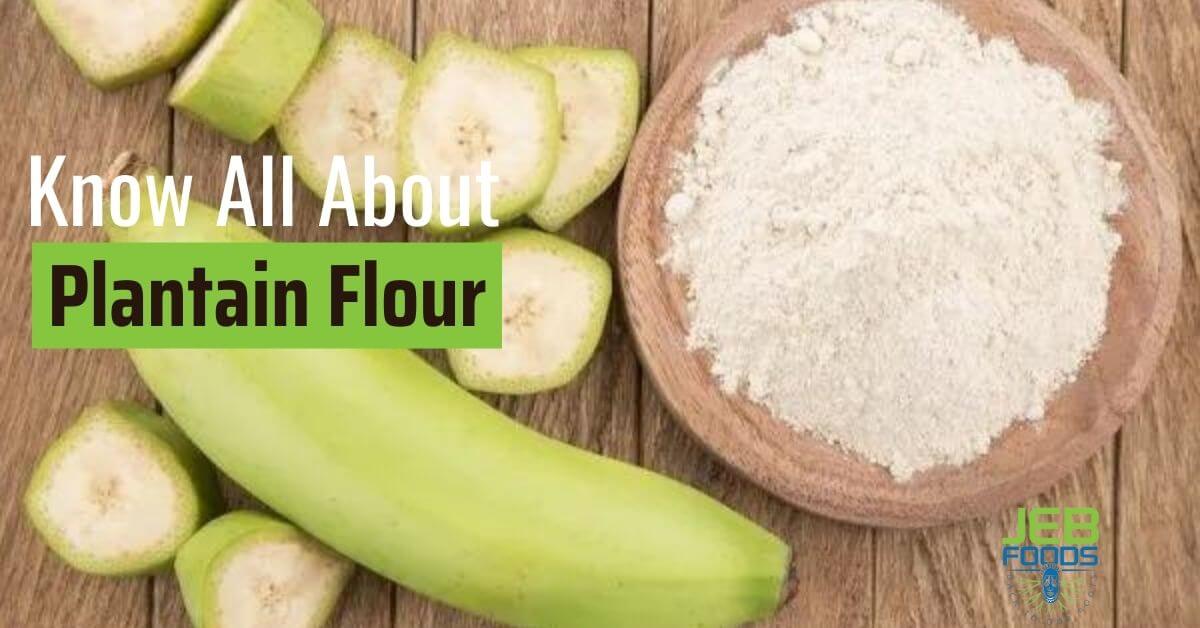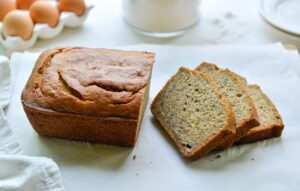In our search for gluten-free wheat flour substitutes, we often feel like we have to compromise. Let’s be quite honest, the healthier alternative isn’t always the tastiest, or as easy to use.
You may have heard of Cassava flour, also known as Yuca flour. Many consider it to be the best grain-free flour available. Is this really true?
I’m going to share the wonders of Cassava flour with you. In this article, you’ll get only the facts. I’ll be dispelling the myths and offering everything you need to know about this ancient, nutritious food.

1. Is Cassava the new wonder food?
Table of Contents
ToggleMany of you may be asking what is Cassava flour?
The Cassava plant is not new. It has been cultivated in South America for over 10,000 years. Originally known as Yuca, this tuber (potato-like) plant has been a staple in the region since time immemorial.
There is some confusion around the name. Yuca flour is often referred to as Yucca flour. Though Yucca is an entirely different plant. In this article, we’ll be talking about Yuca flour or Cassava flour, these are two names for the same thing.
While Cassava (Yuca) has been around since the dawn of time, little is known about this valuable and nutritious plant in the western world. Where did it all begin?
In the 16th century, Portuguese traders introduced Cassava to Africa and, soon after, Asia. Today, Nigeria is the biggest producer of Cassava.
There has been an increased interest in healthy, natural diets. Americans have become more aware of what we eat. Gluten-free and grain-free foods have become an important part of recognized healthy eating habits.
Cassava flour has become popular with people seeking a healthier diet. It is recommended as part of the Paleo Diet and the Whole30 diet. Some are calling it Paleo Flour or AIP Flour because it is one of the best grain-free, non-allergic flours you can get. Let’s see what this means.

2. Cassava Flour Health Benefits
Now for the big question: Is Cassava Flour healthy? The answer has to be a resounding yes. The Cassava tuber is an important ingredient for both food and traditional medicine in many parts of the world.
While most medicinal uses require eating the whole plant or leaves, Cassava Flour has numerous health benefits.It is a rich source of fiber and carbohydrates. Moreover, cassava contains many essential vitamins and minerals. Most noteworthy would be vitamin C and B2. There are many more great health benefits, and some not-so-good ones too.
Let’s take a look at the nutritional advantages and disadvantages of eating cassava.
3. Cassava as an Anti-Inflammatory
One of the best health advantages of using Cassava Flour is that it is high in resistant starch. This provides nutrition for healthy digestive bacteria.
It may reduce inflammation and promote digestive health. Cassava Flour is recommended for people with Irritable Bowel Syndrome (IBS) or Irritable Bowel Disorder (IBD).
4. Cassava Flour and Diabetes
Can diabetics eat Cassava Flour?
The resistant starch contained in Cassava is known to improve metabolic health. This is good news for people suffering from type-2 diabetes.
Cassava Flour is a healthy option for reducing the risk of obesity and diabetes.
5. Does Cassava Flour spike blood sugar?
Cassava has a Glycemic Index of 46. This is much lower than most other forms of starch. Low GI food, like Cassava Flour, slows digestion. This reduces a blood sugar spike after eating. Another reason why it is good for diabetics, as well as reducing appetite by making you feel full after eating it.
6. Is Cassava Flour bad?
The association between Casava and cyanide poisoning has raised some concerns. Naturally, many have questioned if Cassava Flour is safe to eat. Let’s set the record straight.
The raw Cassava plant contains cyanogenic glycosides. When consumed, this can result in cyanide being released into the body. In high enough quantities, this can be fatal. Fortunately, responsibly manufactured Cassava Flour does not contain harmful cyanogenic glycosides and is perfectly safe to eat.
Research into the negative effects of cassava has revealed a tendency to interfere with the absorption of some essential nutrients. This is not something that should be of great concern for people who follow a healthy diet. It is more of a concern in places where malnutrition is a problem.
There is some good news. These antinutrients also reduce the absorption of harmful tannins.
In the end, if your diet contains enough vitamins and nutrients, you will not experience any negative health effects. You will actually benefit from the reduction of tannins.
7. Does Cassava cause constipation?
The high fiber content of Cassava improves digestion and reduces constipation.
8. Is Cassava Flour healthier than wheat flour?
Because Cassava Flour is gluten-free, it is generally considered to be the healthier option when compared to traditional wheat.
In fact, Cassava is not only healthier than wheat, it is seen by many as the best type of flour, period. Compared to most flours, Cassava is relatively low in calories and high in fiber. Both are great for weight loss.
In addition to this, Cassava is high in vitamin C. An anti-oxidant for relieving stress and providing immune system support. It can also improve the skin.
Unlike almond and coconut flour, it does not contain nuts. This makes Cassava Flour the best gluten-free alternative for people with nut allergies.
It probably goes without saying that this is a great vegan flour.
9. Is Cassava Flour the same as tapioca?
Because tapioca is also manufactured using the Cassava root, there’s a misconception that tapioca and Cassava Flour are the same. Nothing could be further from the truth.
Tapioca is made by boiling the Cassava plant and then draining away the starch, which is then left to dry. The end product is almost entirely starch. Whereas Cassava Flour utilizes the whole tuber. It is dried and ground into flour. In so doing, all the fiber and nutrients are retained.
Tapioca does not provide the health benefits that come from eating natural Cassava Flour.
10. Can Cassava Flour replace all-purpose flour?
A major reason why Cassava flour is seen by many as the ultimate wheat replacement is that it has a mild, slightly nutty flavor. You can use it in the same recipes that you would all-purpose flour. Generally, you’ll use it in the same quantity that you would regular flour.
There may be some differences. These will be discussed next.
11. Baking with Cassava Flour
While it’s pretty simple adapting to Cassava Flour for all your favorite recipes, you may want some tips. You can use it at a 1:1 ratio. This means that if you would use 1 cup of wheat flour, you can substitute it for 1 cup of Cassava Flour.
You should be aware, however, that Cassava Flour is lighter than traditional wheat flour and absorbs more moisture. Because of this, some cakes may end up a little denser.
In most cases, you probably won’t notice much difference. Though, at first, you may need to experiment a little. If you want to make cakes or brownies less dense, or lighter, slightly reduce the amount of Cassava Flour.
Although the taste is fairly neutral, this is a natural root flour, not a grain flour. It does have a bit of a nutty taste, which is certainly not unpleasant. In some cases, you may want to alter the flavor slightly.
Cassava flour is finer than wheat flour. It can be dusty if tossed about too much. Something to keep in mind when dusting fried chicken and similar dishes.
12. Frying with Cassava Flour
Okay, we’ve established that Cassava is fine for baking. What about frying with Cassava Flour?
Great news on this front. Because it is gluten-free, this is one of the best flours for frying. It provides a lighter coating for fried food. Though this also means it doesn’t cling as well as traditional flour.
The trick to frying with gluten-free flour is to get the right combination of eggs to improve adhesion.
The end result is sumptuous dishes, with a rich golden color.

Conclusion
It should be clear, by now, that Cassava flour is about the best gluten-free alternative to wheat flour. Nut-free and a healthier option for diabetics. Also rich in fiber, carbohydrates, vitamins, and minerals.
There can be no doubt about it, this is the healthy choice. Making the change from wheat to gluten-free is made easier. Cassava flour can replace wheat flour in your favorite recipes and is perfect for frying.
Before you buy cassava flour, make sure you’re getting the real deal. It is important to know what you’re eating. You want natural, non-GMO food that is responsibly resourced. You also want to know that it is completely safe for you and your family.
JEB Foods ticks all the boxes in this regard. They source the Cassava responsibly from Nigeria. It is certified non-GMO, Paleo certified, gluten-free certified, and grain-free certified. This is a US-based company and is FDA registered.
You also know that you are buying with a social conscience. JEB Foods is New Jersey Minority and woman-owned. Your social dollar spend extends beyond the United States, by helping communities in Nigeria with a sustainable income. Everybody wins and you’re assured of the healthiest flour.




